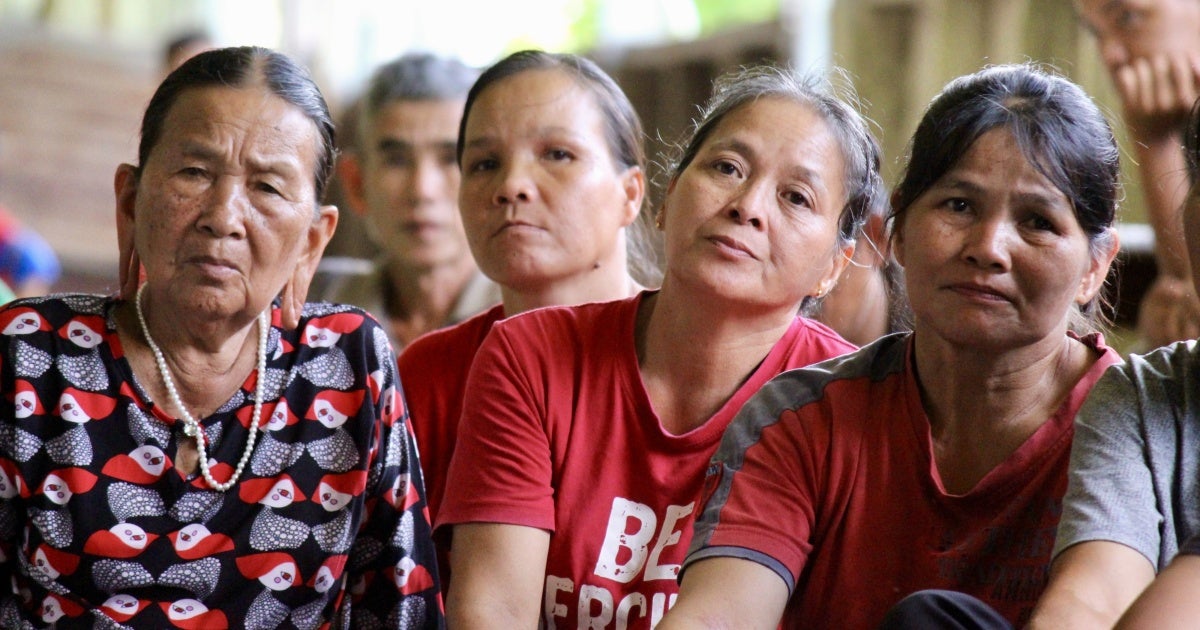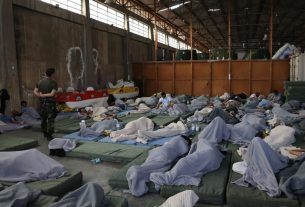(Brussels) – The European Union should classify Malaysia’s state of Sarawak as high risk under its new anti-deforestation regulation, a coalition of environmental, human rights, and Indigenous organizations said today.
Sarawak, whose millions of hectares of ancient rainforests are at risk of being razed for timber and oil palm plantations supplying international markets, is a high-risk area for deforestation and violations of Indigenous peoples’ rights, according to an extensive assessment by Human Rights Watch, RimbaWatch, SAVE Rivers, KERUAN, Bruno Manser Fonds, and The Borneo Project.
“Sarawak’s current land code imposes insurmountable obstacles for Indigenous communities to gain and maintain title to their ancestral lands, while effectively allowing companies to ravage the rainforest,” said Luciana Téllez Chávez, senior environment and human rights researcher at Human Rights Watch. “The EU anti-deforestation law should factor in Sarawak’s dismal track record in its benchmarking process. ‘High risk’ is the only reasonable classification.”
The EU Deforestation-Free Products Regulation (EUDR) will restrict imports of wood and palm oil products, among others, that are linked to deforestation or violations of laws on human rights, land use, and labor. Once enforcement of the regulation begins in January 2025, relevant products cannot be sold on the EU market if they originate from land deforested after 2020. It also requires the European Commission, the EU’s primary executive body, to designate areas as “low, standard, or high risk” by the end of 2024. Two thirds of EU imports tainted with deforestation originate from five countries: Côte d’Ivoire, Brazil, Indonesia, Ghana, and Malaysia.
A “high risk” designation would require EU member countries to triple their customs checks on imports of timber and palm oil products from Sarawak. EU companies importing these products would also have to conduct more rigorous due diligence to mitigate environmental and human rights risks. The Commission would be required to collaborate closely with Malaysian officials to identify measures to reduce risk.
Since 2023, Sarawak has exported at least MYR 37.3 million (€7.8 million) worth of timber products to the EU, including the Netherlands, France, and Greece, according to a Sarawak government agency’s limited public information, most likely only a fraction of the total value of trade. Netherlands, Germany, France, and Belgium were among the top 10 buyers of certified Malaysian timber products, according to the most recent report by the Malaysian Timber Certification Council, dating from 2022. The EU is the third largest destination of Malaysian palm oil exports, according to the Malaysian Palm Oil Board, a government and industry body.
Companies that operate long-term logging licenses are required by the Sarawak Forest Department to receive sustainability certification. But local and international civil society groups have underlined serious deficiencies in the state’s most widely used certification program, the Malaysian Timber Certification Scheme.
The civil society coalition’s assessment of environmental and human rights risks in Sarawak analyzed the threat of future deforestation and the existence, compliance with, or effective enforcement of laws protecting the rights of Indigenous peoples. It found that:
- The Sarawak government has set a goal of establishing one million hectares of industrial timber plantations by 2025. To achieve this goal, over 400,000 hectares of naturally regenerating forest would need to be converted between 2022 and 2025.
- Sarawak state laws fail to uphold Indigenous peoples’ rights to own, use, and control their ancestral territories. Sarawak’s laws impose an arbitrary 1,000-hectare cap on the area for which Indigenous peoples can get legal recognition. The state has the ability to unilaterally revoke Indigenous land titles without consent or even compensation.
- The Sarawak state government grants companies with special leases to operate in areas that it has not yet surveyed, delegating the responsibility of surveying the land to those companies. The land code requires companies to report, and then remove from their concession, any Indigenous land their lease area encroaches on, but without penalties if they don’t. In effect, companies can illegally disregard Indigenous peoples’ land rights claims without consequences.
- Sarawak has no law requiring companies to obtain free, prior, and informed consent from Indigenous communities before leasing or conducting activities on their land. The certification programs that require informed consent have a record of noncompliance, permissive auditing, inadequate enforcement, and no real avenues for recourse.
- No state laws protect Indigenous peoples’ right to access information, even about their own territories. The state government has not released any data about Indigenous land it has allegedly surveyed, nor disclosed where it has issued leases to logging and palm oil companies. Accurate and up to date land-use maps are not publicly available.
“Logging companies are still bulldozing Indigenous peoples’ forests in Sarawak without consultation or consent from communities, which should translate into a ‘high risk’ classification under the new EU law until our government addresses these rights violations and makes effective its commitment to preserve our remaining forests,” said Celine Lim, a Kayan woman and managing director of SAVE Rivers, an Indigenous organization from Sarawak.
Since the EU approved the anti-deforestation regulation, the Malaysian government has contested the definition and monitoring of deforestation and degradation, contending that even though industrial timber plantations involve converting natural forest to a single species of tree (such as acacia), the land remains a forest reserve.
“The Malaysian government could be trying to bypass the EU’s restrictions by ignoring the massive deforestation present in timber plantations,” said Adam Farhan, director of the Kuala Lumpur-based environmental group RimbaWatch. “This underscores the importance of requiring stringent due diligence for Malaysian forest-risk commodities.”
The Malaysian federal government has emphasized that under its Malaysian Sustainable Palm Oil (MSPO) standard, land that was deforested after December 31, 2019, is not eligible for sustainable palm oil certification. Certification is now mandatory for all oil palm plantations, but it is unclear how plantations established after the cutoff date will be handled. Further, while the federal government has set a limit of 6.5 million hectares for oil palm plantations across the country, it remains unclear how it will enforce this goal since states, not the federal government, have jurisdiction over land and forest administration.
“Malaysia’s certification schemes do not live up to their promises and do not guarantee compliance with the EU law,” said Annina Aeberli of the Bruno Manser Fund, a Swiss organization working on tropical forest protection. “The EUDR is an opportunity for the Malaysian government to improve its sustainability standards, fix flaws in the auditing system, and create effective oversight mechanisms.”
In May, the civil society coalition wrote to the Malaysian federal Plantation and Commodities Ministry to share their findings and make a series of recommendations. The coalition urged the government to incorporate the United Nations Declaration on the Rights of Indigenous Peoples in federal legislation; adopt a broad freedom of information federal law; introduce federal legislation prohibiting strategic lawsuits against public participation (SLAPPs); and establish meaningful penalties for non-compliance with the Malaysian Sustainable Palm Oil standard and the Malaysian Timber Certification Scheme. The Ministry has not replied.
The Malaysian government has been among the most vocal critics of the EUDR, contending the EU had failed to consult producer countries about the impact of the regulation, while also acting to prevent Malaysian civil society groups from participating in discussions with the European Commission over the law’s implementation. Pushback against the regulation has increasingly come from within EU member countries, however, culminating on September 12 in a call from German Chancellor Olaf Scholz to delay implementation of the law, even though companies had 18 months to prepare.
“In 2023, the world lost an equivalent of almost 10 football fields of climate-critical forest per minute, and EU countries’ demand for commodities like timber and palm oil has been a key driver,” Téllez Chávez said. “Calls from EU governments to delay enforcement of the law are a deplorable abdication of leadership in the face of a climate emergency and Europe’s responsibility to do its part.”



